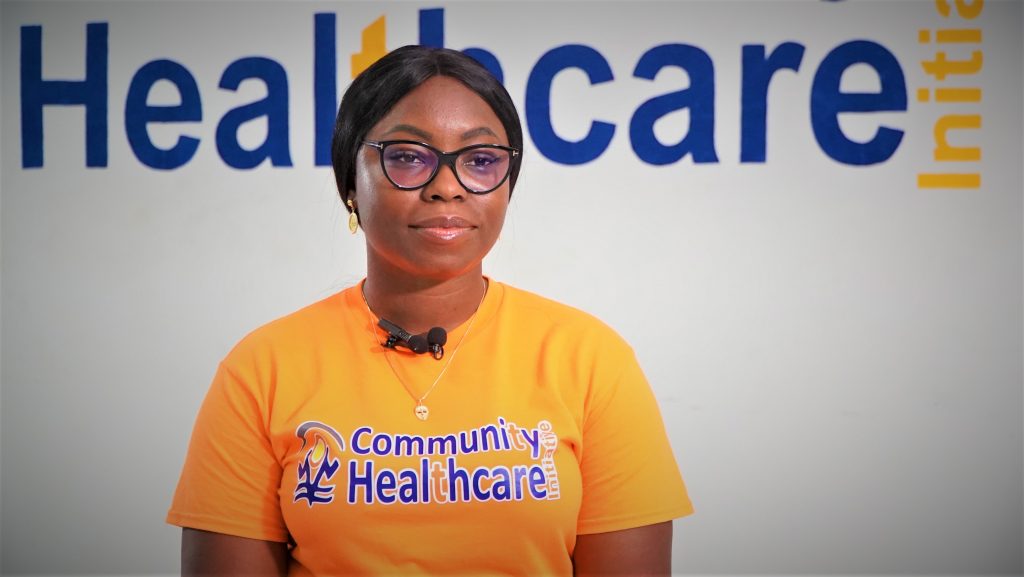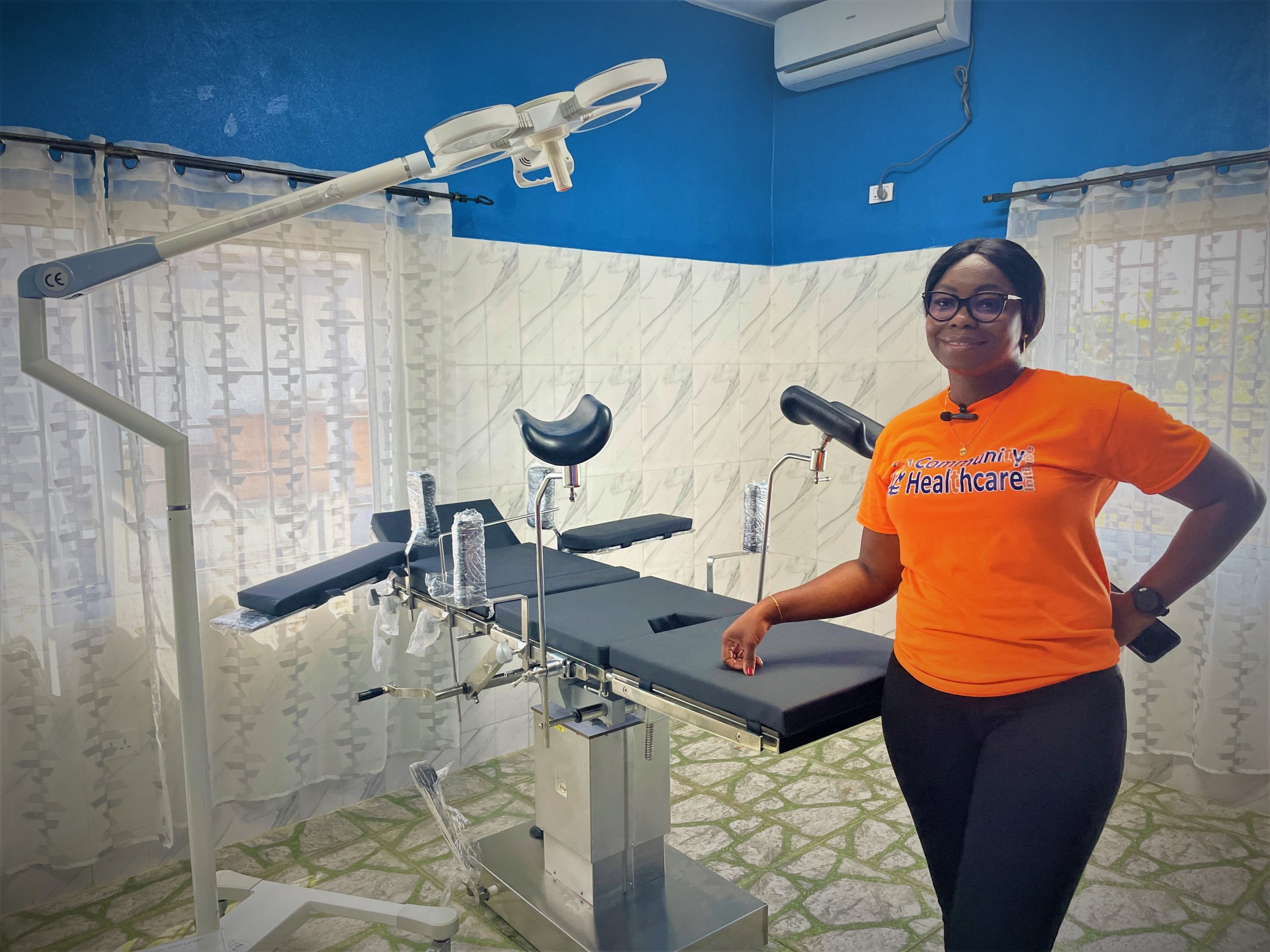The Executive Director of a local non-governmental organization, known as Community Healthcare Initiative (CHI), Naomi Tulay-Solanke, has divulged that Sexual Reproductive Health and Rights (SRHR), remain key to living an authentic life as humans.
Naomi Tulay-Solanke, who is a healthcare professional and a humanitarian, has been leading a group of passionate young people to work in marginalized neighborhoods, slums, and marketplaces to enhance access to healthcare, social services, women’s rights, children’s rights, the rights of critical groups, and the rights of persons with disabilities.
According to Solanke due to the lack of Sexual Reproductive Health and Rights (SRHR) awareness in Liberia, many have lost their lives while others live with poor health conditions across Liberia.
Moreover, Naomi Tulay-Solanke, told Kukatonon News that due to her quest for Sexual Reproductive Health and Rights (SRHR) education, her organization, CHI, has established a Clinic and a Mother Support Group in 20 different areas which help Mothers engage in crucial nutrition initiatives; and access counseling at a Sexual and Reproductive Health and Rights (SRHR) Clinic.

While speaking to Kukatonon News in a premier interview recently at their Marshall’s office in Margibi County, Naomi Tulay-Solanke, revealed, that for a great deal of time, she and her team have worked with vulnerable segments of the population because they believe that their rights are often violated and they are most underserved and highly discriminated against in terms of distribution of resources in the Country by the national Government.
“CHI would not be CHI if a handful of passionate, daring, knowledgeable, hardworking decision-making young people, did not volunteer to change Liberia’s pressing socio-economic challenges” she pointed out.
However, Naomi Tulay-Solanke unveiled, that her organization has also set up women’s forums and girls’ health clubs in 30 localities and 25 schools, empowering women and girls to advocate for their rights and respond to situations, of violence by using the legal system as well as education on sexual and reproductive health and rights.
“We are on a mission to improve socio-economic development in communities by working with and strengthening the capacity of communities whilst also implementing health and protection interventions through a participatory approach to socio-economic development.
Therefore, the Community Healthcare Initiative has assisted over 50,000 people, the majority of whom, are women, children, and also members of sexual minorities and other at-risk populations. There are also around 2,000 girls and young women who have benefited from the direct involvement with the organization”; she explained.
In furtherance, Naomi Tulay-Solanke clarified that through CHI’s work, 46 women’s forums and girls’ health clubs, have received endowment monies to help speed up the processing of sexual and gender-based violence cases at the local level. She said another primary focus of CHI has been, menstrual issues which the organization initiatives keep pushing with support from partners.
“In Liberia, adolescent girls and women are disempowered by menstruation as affordable and hygienic-sanitary protection is not available to girls in many parts of the country. And as such, they use unhygienic rags and clothes which put them at risk of infection” She elucidated.
In addition, Solanke declared that as an attempt to educate girls and women about menstruation issues, the organization launched a book on menstrual hygiene management called Kolu’s Moon. The book promotes conversations about menstruation among parents, students, boys, and girls in the classroom, home, and community.
“The book Kolu’s Moon is based on the life experience of a little girl from one of CHI’s project Communities. The child in question was bullied because she had period stains on her dress. Like this little girl, many others have been bullied simply because they bled through their clothes, held a pad, or spoke about menstruation openly.
It’s very interesting to note that Kolu’s Moon, was written for adolescents in Liberia to understand that the changes girls experience during puberty should not keep them away from school, or stop girls from achieving their dreams and that menstruation, is a normal biological process” stated Tulay-Solanke.
At the same time, she said, the Community Healthcare Initiative is also running a PAD4G-girls training program which has made significant strides towards its aim of ensuring females remain in school during menstruation, especially for girls who cannot afford sanitary pads, during menstruation and it has provided a space where women and girls can freely discuss menstrual health and empowerment issues.
“CHI has trained women and girls on menstrual hygiene management, the production of sanitary pads, and the basics of business management in eight (8) of the fifteen Counties in Liberia; and as a result of their projects, women and girls in rural project communities can now continue to go to school whilst menstruating by using our self-made reusable sanitary pad to promote girls’ retention in Schools”; furthered Naomi Tulay-Solanke.
Again, Solanke sounded off that the importance of CHI’s work in over 8 Counties, 30+ Communities, and 25+ schools cannot be overemphasized as it has positively affected women, girls, sexual minorities, and community structures through different levels of training and livelihood programs.
“Women and girls are now supported in claiming their rights and reporting violence cases, in our project communities which have helped them live better lives with their families,” she said in conclusion.
Meanwhile, as a non-governmental organization registered in 2014, with support from partners, CHI has been able to run a Sexual and Reproductive Health and Rights Clinic which caters to less privileged girls, women, and other valuable community dwellers.
CHI’s primary objective is to strengthen and promote healthcare, social services, women’s rights; child rights, especially girls including persons living with disability and sexual minorities in Liberia.
Reflecting on the past, it is sage to note that during the Ebola epidemic of 2014, the Community Healthcare Initiative CHI, contributed mightily by creating awareness amongst the citizens of Liberia about the dangers posed by the fatal disease and; how people could protect themselves and avoid coming in contact with the virus.

Bedeskoe Nyumah Tumbay Is A professional Liberian Multimedia Journalist, a Full Member Of The Press Union Of Liberia (PUL), Who Reports On All Sectors Of Society. He Has Several Years Of Experience In Journalism, Media Relations, Communication Consultancy, Video And Audio Contents Gathering, Editing And Production Among Others.

